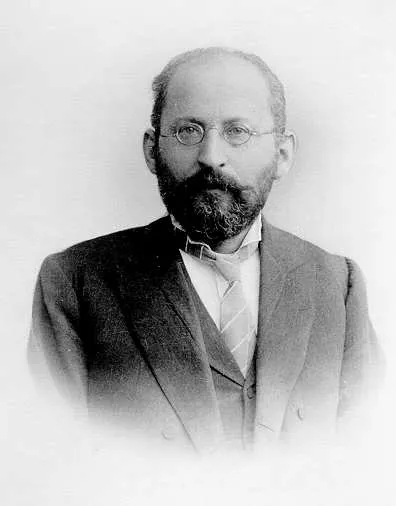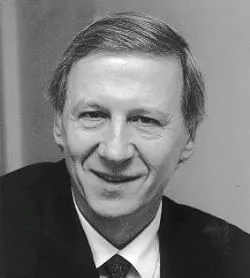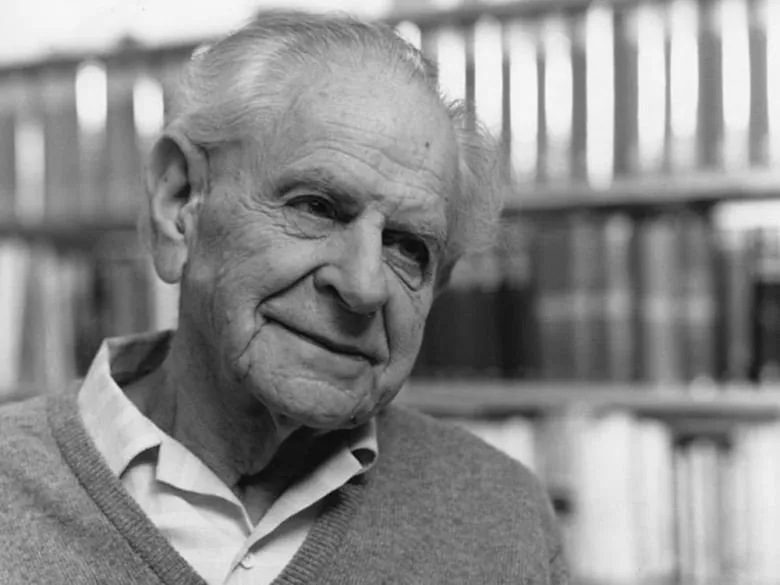The New Democrats

We are starting to see social democrats grow in popularity. Individuals like Bernie Sanders, Beto O’Rourke, Alexandria Ocasio-Cortez, and Ilhan Omar have become extremely popular. For the most part, their views and policies align with those of many of America’s Founding Fathers, insofar as they advocate progressive taxation and government taking a role in social welfare. While they admire Nordic Model social democracy, they especially look to Franklin Delano Roosevelt’s New Deal as an example of what social democracy ought to look like in America, which means that they depart from European social democrats on things like corporate income taxes (American social democrats usually support high corporate income taxes, whereas European social democrats tend to oppose corporate income tax altogether).
Some of these individuals—Sanders and Ocasio-Cortez in particular—have described themselves as “socialists.” Ignorant conservatives have used this label as grounds for mocking and deriding them. In reality, these new social democrats are just classical republicans, in the tradition of the American Founding Fathers. Previously, I wrote a couple essays about the political and economic ideas of Thomas Jefferson and Thomas Paine. In those essays, I discussed how Jefferson was a critic of wage slavery and wealth inequality, how both Jefferson and Paine opposed what we call "capitalism" today, and how they both advocated progressive taxation as a means of ensuring a more egalitarian distribution of wealth. I also talked about how the Founding Fathers supported a robust welfare state. Even John Adams, the most conservative of the Founding Fathers, supported an early plan for single-payer socialized medicine. The bottom line is that the precedent for everything that these new social democrats are advocating comes more from the American Founding Fathers than from Karl Marx.
Socialism
To label these new social democrats as “socialists” is a mistake—it is a misnomer. Or, at the very least, it is totally misleading unless you precisely define your terms and make it clear that you are here using the term “socialist” to mean something totally different from Marxism, anarchism, Leninism, Fabianism, et al. The truth is that social democrats entirely reject the essential tenets of Marxism. The Communist Manifesto teaches the following:
(1) historical materialism (or dialectical materialism) a deterministic view of history that asserts that all historical progress is determined by socio-economic forces, that history of society is the history of class struggle, and that understanding the science of sociology/economics allows one to make accurate predictions of the future
(2) that the profit-motive under capitalism will encourage employers to provide their workers with the lowest wages possible and that employers will refuse to spend money on safety measures in order to maximize their profits, and that this process will result in the immiseration of the proletariat (i.e. the total impoverishment of the working class)
(3) that, as a matter of historical necessity, this natural progression of capitalist exploitation will leave the workers so impoverished that they have no choice but to rebel against the capitalist class, throw off their chains, and violently take control of the government and the means of production
(4) that the cycle of recessions/depressions in capitalist economies results from the "anarchy of production," whereby producers produce without knowing for certain what the consumers need, and that this anarchy leads to a disequilibrium of supply and demand; that each new recession is worse than the last and that the capitalist system will eventually fail as a result of its own internal contradictions; following from this, that the only solution to the boom-and-bust cycle is to have government step in and coordinate production through central-planning, and that this alone can save the economy from impending collapse
(5) that all industry must be publicly-owned and centrally-planned; the goal of socialism is government-ownership of all industry and the abolition of private property in the means of production
Now, nearly all of this is rejected by social democrats. Eduard Bernstein, the founder of modern social democracy, rejected all of this Marxist doctrine with the exception of "historical materialism," whereas most modern social democrats reject even that. (Karl Popper, who has influenced many modern social democrats, has actually written several books refuting "historicism.") Bernstein had been a student of Marx and Engels, but he was no uncritical disciple. He argued that Marxist dogma was wrong. He still called himself a "marxist" and a "socialist," because he regarded historical materialism as the essence of Marxism and regarded socialism as the movement to eliminate the exploitation of the working class.

Social Democracy
Bernstein, the first modern social democrat, put forth a counter-narrative to that supplied by Marx in the Communist Manifesto. This view was, in many respects, the exact opposite of Marx's socialism (hence, why most genuine socialists despise social democrats). Bernstein taught:
(1) that historical materialism was basically correct, that the progress of society is directed by socio-economic forces and that understanding sociology/economics (the science associated with those forces) can allow one to make accurate predictions of future socio-economic developments
(2) that the profit-motive under capitalism does encourage employers to provide low wages and cut corners on safety, but that liberal democracy also tends towards universal suffrage (the right to vote) and that this allows the working class to raise their position through democratic means—the workers end up voting for progressive politicians that implement policies to ensure workplace safety and decent wages; thus, the immiseration of the proletariat will never take place.
(3) that since the dreaded immiseration/impoverishment will never take place, the working class will never become fed up and spontaneously rebel; the working class will be made better through peaceful evolution through democratic processes rather than through violent revolution
(4) that the cycle of recessions/depressions will not necessarily result in economic collapse; that more moderate policies could mitigate the negative effects of anarchic market allocation
(5) that private property and the market system are fundamentally good and ought to be preserved; although the market does sometimes fail, it usually does pretty well; government ought only to intervene in those places where markets fail
To genuine Marxists, socialism is government-ownership of industry in a centrally-planned economy, whereas capitalism is private-ownership of industry within a market system. From the perspective of actual socialists, social democracy is just a modified version of capitalism. Modern social democrats like Anthony Giddens have argued that social democracy is really neither pure capitalism nor socialism. Under social democracy, rights of private property may be restricted (e.g. the government may break up monopolies in order to restore something more like pure competition) and government may intervene in the market to correct market failures (e.g. guaranteeing universal healthcare through single-payer or socialized medicine). This is not unregulated laissez-faire capitalism. At the same time, social democrats are opposed to government-ownership of industry in general. The market usually does pretty well at producing things like houses, food, cars, entertainment, etc. There is no logical reason to socialize such industry. Thus, social democracy is not socialism because most industry is not socialized. The existence of socialized medicine and welfare programs does not make a country any more socialist than the existence of government-run police and military do. Thus, Giddens has referred to social democracy as a third way that embodies the radical centre, steering between the errors of right-wing neoliberalism (aka capitalism) and left-wing socialism. Giddens sees the value in the insights of both the left and the right and advocates a nuanced approach that balances egalitarian tendencies with "philosophic conservatism." (Cf. Anthony Giddens, The Third Way: The Renewal of Social Democracy)
Sanders & Ocasio-Cortez Are Not Really Socialists
Some social democrats, like Sanders and Ocasio-Cortez, call themselves "socialists" for the same reason that Eduard Bernstein called himself a socialist—because they identify with the spirit of socialism, the fight against exploitation and inequality. This liberal and loose use of the term "socialism" was popularized by Anthony Crosland and is still used by many social democrats. While this usage of the term socialism does have historical precedent, going back to at least 1899, I think it is much better and far less confusing to go the route of Giddens and describe social democracy as third-way radical centrism. This third-way radical centrism really resonates with the ideas of the American Founding Fathers, who like the social democrats were neither neoliberals nor socialists.

Decentralization & Democratizing Democracy
Anthony Giddens, one of the leading proponents of social democracy in the 20th century, argued that classical social democrats tended to expand government and that this was a mistake. Instead, third-way radical centrist social democrats ought to apply the principle of subsidiarity. As you may know from my other writings, "subsidiarity" is the notion that all matters ought to be managed by the smallest unit of organization/government capable of effectively managing it. This is a principle that has guided confederalists and distributists.
"The neoliberals want to shrink the state; the social democrats, historically, have been keen to expand it. The third way argues that what is necessary is to reconstruct it—to go beyond those on the right 'who say government is the enemy,' and those on the left 'who say government is the answer'....
"The crisis of democracy comes from it not being democratic enough....
"The issue isn't more government or less, but recognizing that governance must adjust to the new circumstances....
"The state must respond structurally to globalization. The democratizing of democracy first of all implies decentralization—but not as a one-way process. Globalization creates a strong impetus and logic to the downward devolution of power, but also to upward devolution. Rather than merely weakening the authority of the nation-state, this double movement—a movement of double democratization—is the condition of reasserting that authority, since this movement can make the state more responsive to the influences that otherwise outflank it all round. In the context of the European Union, this means treating subsidiarity as more than a doctrinal term: it is the way to construct a political order which is neither a super-state nor only a free trade area..."(Anthony Giddens, The Third Way: The Renewal of Social Democracy, Chapter 3)
The third-way social democrat envisions a framework for global governance based on free contract or confederation internationally. You could globally construct something like the EU that serves as a free trade area and confederation for global governance without constituting a New World Order style global government. In order to establish legitimacy for government in general, power will have to be decentralized and we will have to engage in new forms of democracy. Traditional representative democracy will not be overturned, but direct contact between citizens and government will have to be re-established through "experiments with democracy," including "local direct democracy, electronic referenda, citizens' juries, and other possibilities."(ibid.)
I believe that Giddens' emphasis on decentralization is, perhaps, part of the reason that MMTer have proposed a federally-funded job guarantee program with decentralized administration. This emphasis on decentralization is important and it is yet to be seen whether the new social democrats in Washington are going to pay tribute to this doctrine of subsidiarity or not. It is worth noting that both Sanders and Ocasio-Cortez have ties to (or have been influenced by) MMTers, so it is likely that they have been influenced by this way of thinking. Nevertheless, the failure of the new social democrats in Washington to expressly address the issue of centralization/concentration of power is disconcerting, though not as disconcerting as the attempts by everyone else in politics to deliberately centralize power for nefarious purposes.

Liberal Democracy & The Open Society
Social democrats, like Giddens, are advocates of "dialogic democracy" or what Karl Popper called the open society. Advocates of "social democracy" and advocates of "the open society" will find a lot of room for agreement. They are both proponents of liberal democracy. While Popper does not identify as a social democrat, he is within the liberal democratic tradition to which social democracy belongs.
Popper contrasts tribal societies ("closed societies"), which do not openly trade and interact very much, with "the open society" of liberal democracy. The emergence of liberal democracy had begun in ancient Athens and was responsible for the dissolution of closed tribal societies. Athenian imperialism and commerce went hand-in-hand with democracy. (Cf. Karl Popper, The Open Society & Its Enemies, Chapter 10, Section 2) Government and imperialism were essential to creating money and establishing commerce, so Athenian imperialism was linked to Athenian commerce. But, seafaring and commerce created an open society in which various tribes and peoples interacted. Such interaction tended to undermine superstitions and the tribal institutions that were based on them. It became harder for shamans and chiefs to control people and impose their authority as society became more open. Consequently, the more open society became, the harder it was for oligarchs to maintain their privileged position or for governments to appear legitimate to their subjects. Larger markets and greater commerce require more democratic systems in order to establish legitimacy of government and keep the people from revolting.
Within the open society, it becomes necessary for governments to establish legitimacy through democratic means in order to maintain order. In order to govern in an open society, persuasion becomes far more important than brute force. Ideally, a liberal democracy will be a dialogic or deliberative democracy in which decisions are made rationally, based on meaningful discussion. Liberal democracy strives for rational government rather than arbitrary government or government by force. As globalization broadens, markets expand to their maximum extent, and the open society reaches its full potential, it becomes necessary to implement more deliberative and participatory forms of democracy in order to maintain order.
Piecemeal Social Engineering
Karl Popper recognized that "rational social engineering" was necessary insofar as some form of government is necessary for an open society to exist, but he distinguished between utopian engineering and piecemeal engineering. "Utopian social engineering" is what socialists and anarchists propose, when they seek to totally destroy the established order and start over from scratch—the utopian wants to engineer a new society from scratch. "Piecemeal social engineering," on the other hand, is more in line with Giddens' philosophic conservatism—it seeks to make smaller changes and gradual reforms rather than overarching utopian revolutions. The piecemeal social engineer can convince people to support his proposed reforms and get them imposed democratically, with popular support. This renders violent revolution unnecessary and maintains social stability and security while making improvements to the social order. It is much easier to get a majority of people to support a single policy or reform proposal than it is to get a bunch of people to support an overarching vision for rebuilding society from scratch. It is much harder to get a majority of people to agree on what an ideal society would look like than it is to get a majority to agree that a particular tax reform proposal is desirable. Liberal democrats and social democrats agree that this approach of gradual, practical reform is preferable to utopian revolution and the restructuring of society based on theoretical models.
Conclusion
Popper, like Giddens, presents a vision of liberal democracy that strikes a balance between the left and the right, between progressivism and conservatism. On the one hand, he recognizes that injustices exist within the current system and that change is necessary. On the other, he recognizes that stability and security are desirable and ought not to be sacrificed for the sake of revolutionary change. The traditions of social democracy and liberal democracy occupy a place in the middle, between left and right, like Karl Marx coming to terms with Edmund Burke and both rejecting the left/right dichotomy in favor of a radical centrism that is both conservative and progressive.
These new "socialist" politicians in America represent this same tradition of liberal democracy and social democracy. They are not actually socialists at all. Sanders, O'Rourke, and Ocasio-Cortez comprise the radical center. The fact that they are viewed as the "far left" in America just demonstrates how much Americans have been brainwashed by rightwing extremism.